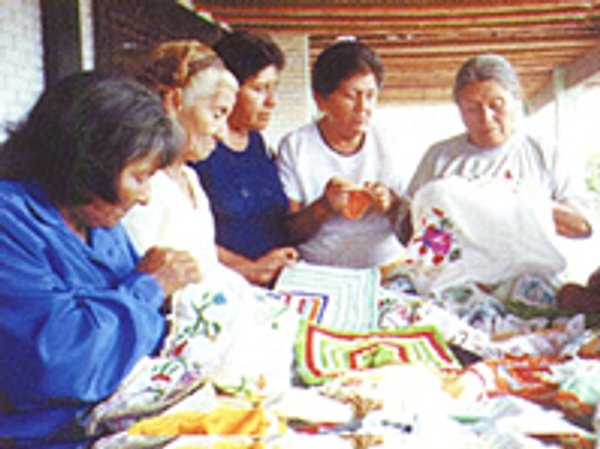First, let me tell you a little about Cañete. More than 70 percent of the families are so poor that they cannot afford their primary needs. Many are illiterate. But we farm women have strong constitutions.
Besides caring for my own home, I work every morning cooking and housekeeping for others. In the afternoons, my children and I work out our schedule for the following day. They all help my husband and me by performing tasks according to their abilities.
My acquaintance with St. Josemaría
I met him in the films they show us in [an Opus Dei women’s center called] Condoray. I was 19 when I began to take part in the activities there. They explained how to sanctify work according to the teachings of St. Josemaría. Later on they spoke to me about God, the Virgin Mary, the importance of attending Mass every Sunday. I had been going now and then, but not regularly.
I also learned to help others, to give myself for them, by taking good care of the house: as St. Josemaría used to say, poverty isn’t the same thing as filth. I decided to improve the earth floor and the bark oven in my kitchen. I keep them smooth and damp to prevent dust. This way they stay clean. It was impressive to hear him say in one of the films that housework is what the Virgin Mary did, and I try to do it as she would.
They also taught me how to better care for my husband and to dress well. I also decided to pass on to others things I don’t need at home so that someone more needy can use them.

Overcoming poverty
There’s a lot of economic privation in Cañete. Once I said to one of my sons, “Today we won’t be eating because there’s no food.” He was playing outside with one of his little friends, and mentioned that to him. Very soon the boy’s mom had him bring me two pounds of rice. I was surprised and very grateful. The teachings of St. Josemaría have brought all of us a sense of solidarity. For example, if someone is sick and has no money, we have a town meeting to decide how to come up with the money that family needs. If we have any clothing we no longer use, we wash and repair it, and pass it along to whoever needs it.
The saint has taught me to place a high value on the family. Children are not a burden but a sign of God’s trust in me, and so I correspond to that trust by never making use of contraceptives. It’s not easy to raise a family of 13, like mine.
I’ve become one of those promoting these improvements in our village by helping people learn to deal with their own problems. I speak with the women and teach them how to work more efficiently, to love their work, and to overcome difficulties through generosity and cheerfulness. I also teach them cooking and other skills and give classes on human and family formation so that they can see things in a spiritual way.
We are all learning the most basic thing: that education is the most powerful way to overcome poverty and to promote the development of our people. Our teachers who come every week to Condoray have shown us how to form other people and in that way to pass on enthusiastically what they taught us.
When St. Josemaría said that we have to place Christ on top of all human activities, I never thought that we would be the ones placing Him there, making Him the King of our lives, the King of our homes, the King of our villages, the King of everything.
